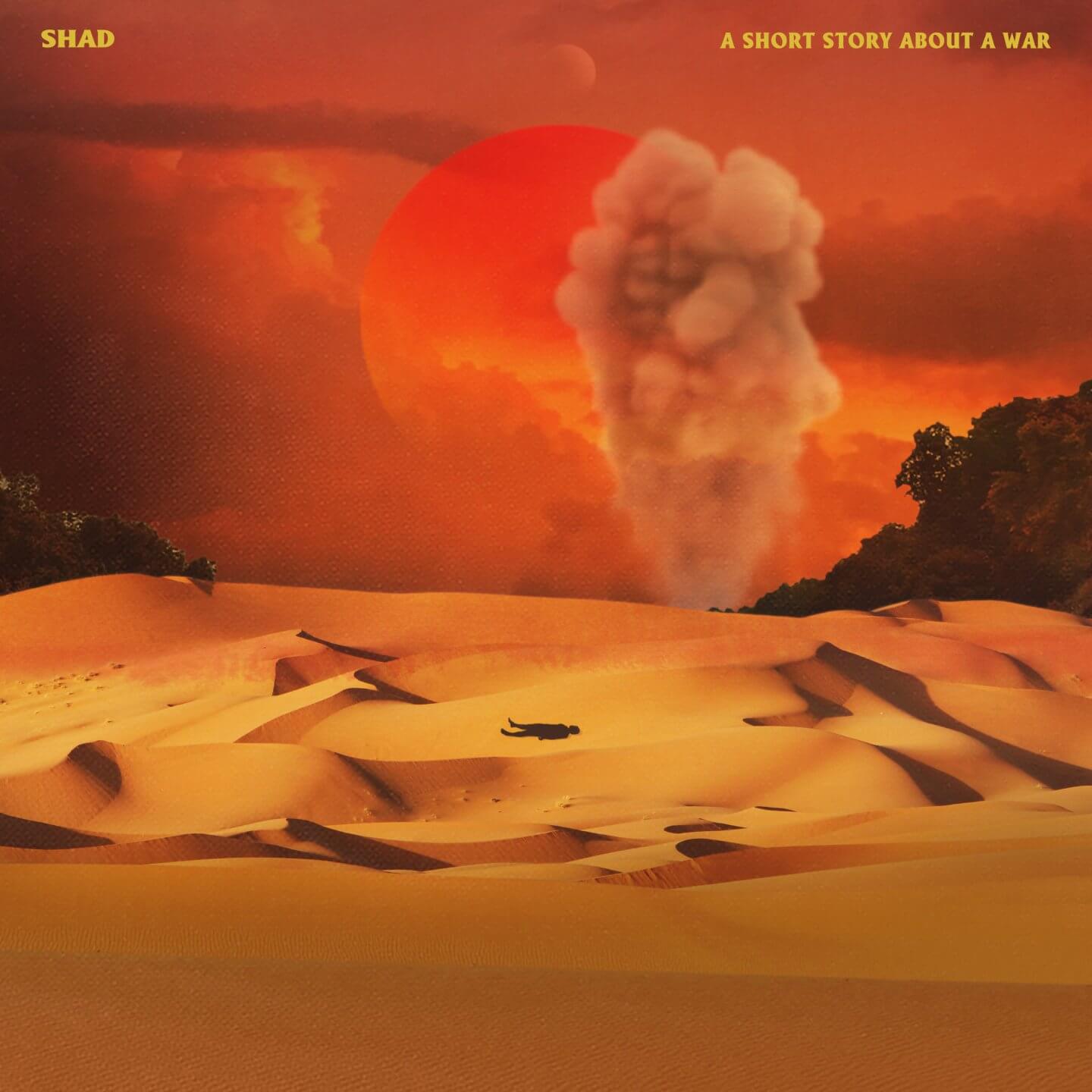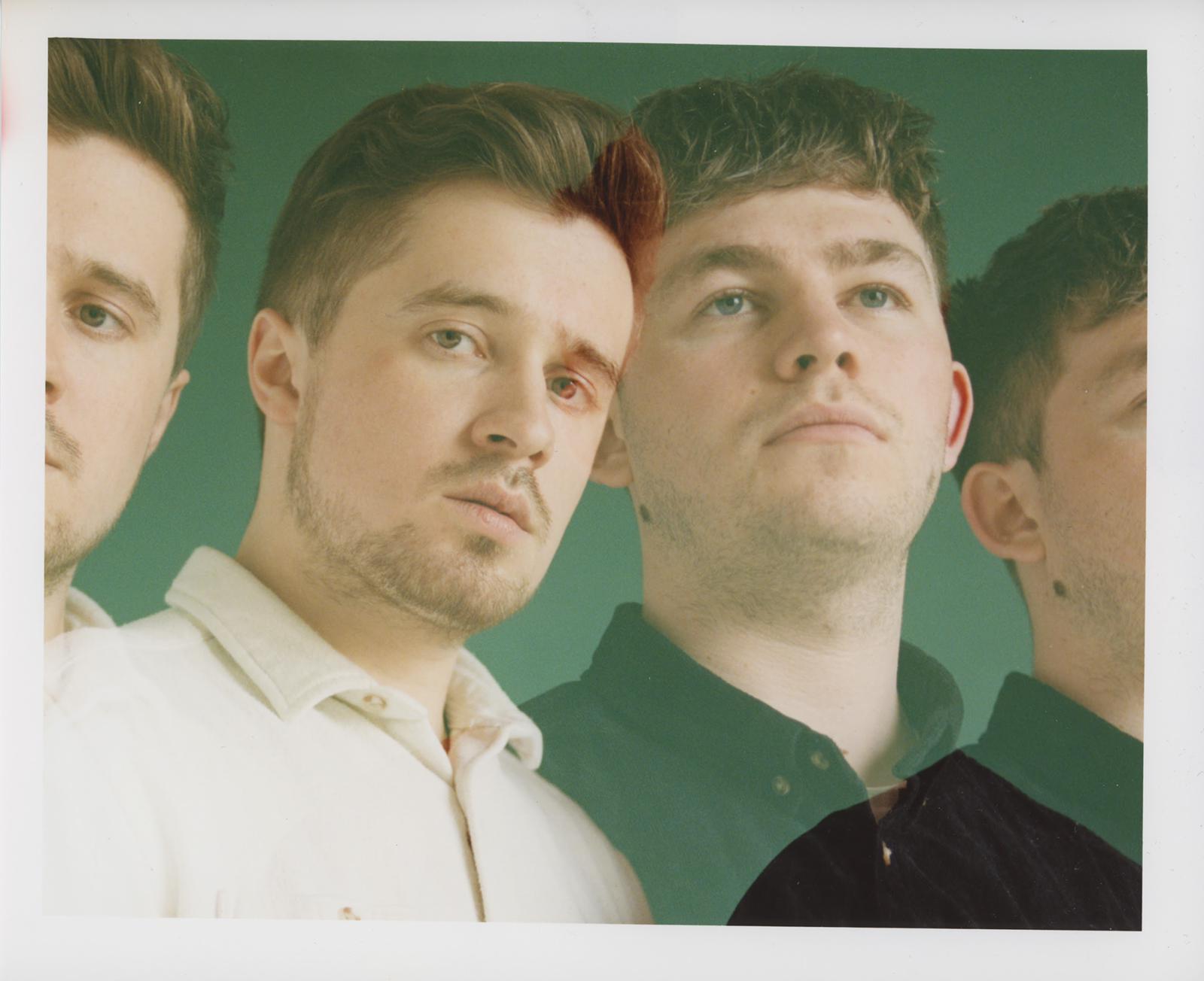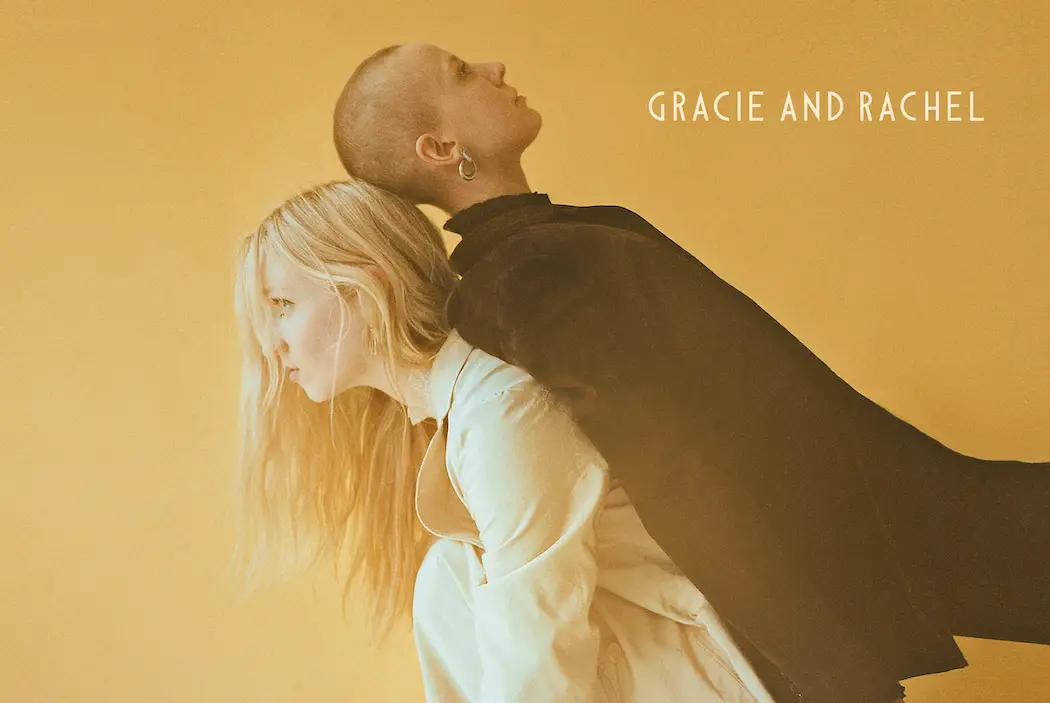talker’s EP “Horror Films” speaks for itself, a rending cut of bedroom grunge pop that airs our deepest insecurities out for all to see. Atwood Magazine sits down with this rising star to discuss her intimate approach to songwriting and what it means for her to to pour her vulnerability into her art.
My life seems to consist of a series of happy accidents. Case in point, I find myself again at Downtown LA’s Moroccan Lounge, the summer air oppressive as the sun dips behind a forest of skyscrapers. What accident brings me here tonight? To answer that, you need to dive deep into my Twitter inbox.
Celeste Tauchar didn’t introduce herself as an artist. For all I knew, she managed the singer/songwriter Enjune, whose serene, mournful “Lost in the Woods” she brought to my attention. But in promoting her friend’s admittedly outstanding work, she buried the lead. Under the pseudonym talker, Tauchar crafts a brimming, potent blend of bedroom pop and 90’s alt teeth. And I never would have known had I not let my curiosity get the better of me.
It’s grunge pop that makes you want to get on your floor and cry.
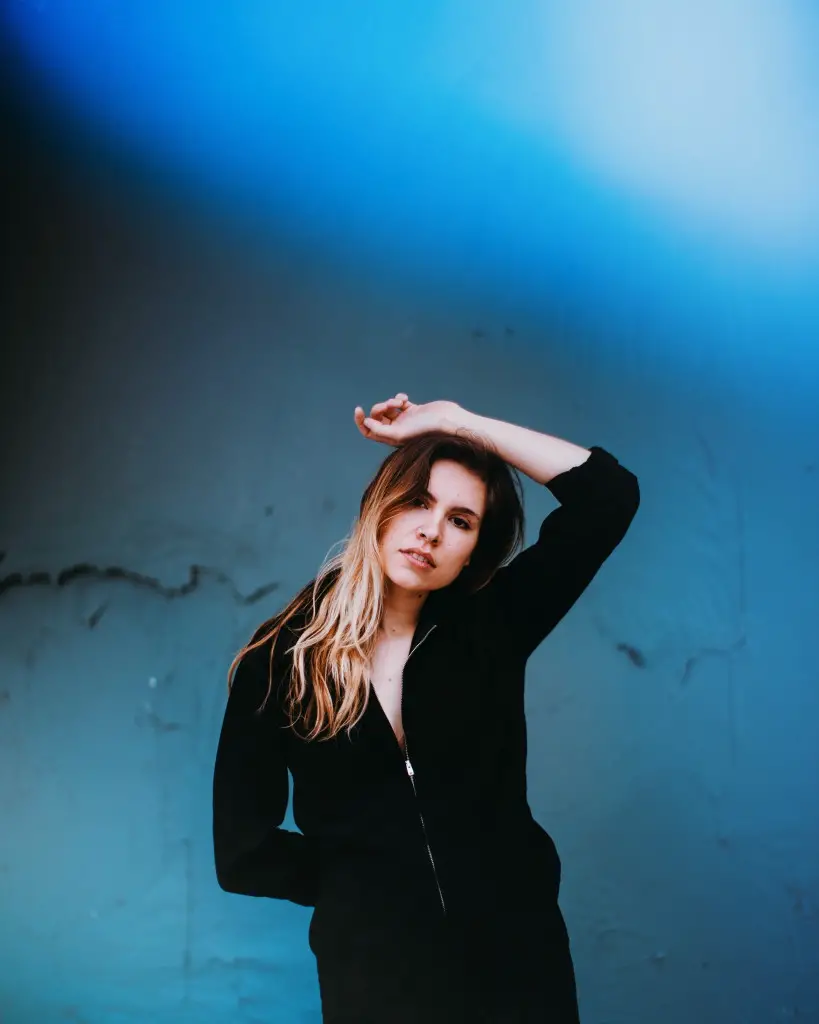
I’m idling in a North Hollywood neighborhood days before the show, doing my best to hear over the roar of construction. It’s not the most ideal situation, but I managed to snag a minute on the phone with Tauchar. All-in-all that feels like a win.
Before she rang, her EP Horror Films finished its fifth lap around the repeat button. My mind is ablaze. Over a brisk five tracks, she puts her heart on display, sliding deftly between delicate vulnerability and bare-knuckled raging. It’s an exploration of the internal narratives we tell ourselves over and over about how we messed up, why we aren’t good enough. It pulls back the curtain to reveal the shame and darkness underneath our skin. A therapy session in eighteen minutes.
“That’s just everything for me,” she says. “All music has a purpose. Even the most basic, surface level songs can be really fun and bring joy in an effective way. For me though, I feel so seen when I hear other people struggle with the same things I do and offering some sort of solution to it. Even if there really is no solution, I’ve been to a thousand concerts where I’m in the crowd with a bunch of other people who are crying to the same song as me. If I can provide that same feeling for somebody through my music, that would be really cool.”
She’s snared at least one person.
Horror Films wastes no time sharpening its scalpel. It opens with “Changes,” a swirling cloud of darkness and indecision that descends with the same discord as Civili Twilight’s “Letters from the Sky.” In it, talker ruminates on the unhealthy patterns that keep us rooted despite our desire for growth.
I’m trying to make changes
But I keep breaking in the same damn places
I’m trying to save it
But I keep making all the same mistakes.
The sky never brightens. “Collateral Damage” deals with the fallout of codependency over a seething bass line and a cathartic strike of electric guitar. “Passive” takes a similar stance with its protagonist frozen by the pain she causes others. “Intimidated,” blooms from an acoustic lament into a frustrated, full-band wail. It’s an emotional trial by fire, but fiercely rewarding for those who dare to take the plunge.
Everything is a personal struggle on that EP.
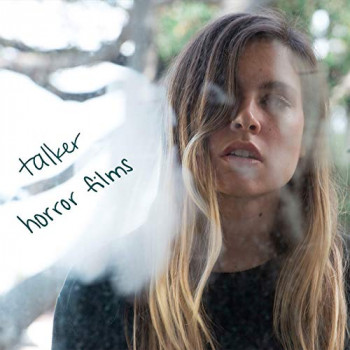
Celeste Tauchar has morphed every challenge she’s met into a chance for communal therapy.
Flash forward to the night of the show. I’m standing at the Moroccan’s trademark foyer bar, waiting for the stage doors to open. By Tauchar’s own admission, her music shines brightest live, where everyone can share the experience as one living entity. I scoop up my drink and follow a handful of early arrivals through the double doors (pro tip: if you ever find yourself at the Moroccan Lounge on a Friday, ask for Andy to mix you a drink. The man is a Tunes & Tumblers-worthy genius). Hannah Wicklund may be the marquee draw of the evening, but for a moment, the room coalesces around the rent heart of talker.
Show me the horror films playing in your head
All of the darkest fears you’ve left unsaid
Shadows that shake you awake in the night
Show me your haunted side
and I’ll show you mine.
She and her band march through the EP, sprinkling in a couple of treats along the way. There’s the unreleased “Suck Up” that flirts with the best of Against Me!’s low-fi femme punk. Then she drops TV on the Radio’s classic mosh pit fuel “Wolf Like Me.” She swings expertly between quiet moments and unbridled release, sweeping the crowd up in her wave.
The room feels far too thin for her sound. It deserves a throng of bodies, absorbing and swaying as one.
Tonight is an accident. The number of things that had to fall into place for me to find and connect with her music could precipitate an existential crisis if I look too closely (she could have just as easily reached out to another writer, for one). Despite all that, it seems like the best moments arrive by serendipity. talker and her music are among the best accidents to befall me this year and are by far the least painful.
But who is this musical empath and where did she come from? Luckily I got a chance to sit down with her (albeit in my car over a glitchy Verizon connection) to discuss everything from her origins as a songwriter, to the vulnerabiliyt she displays in her music, to what perpetuates the trope of the tortured artist.
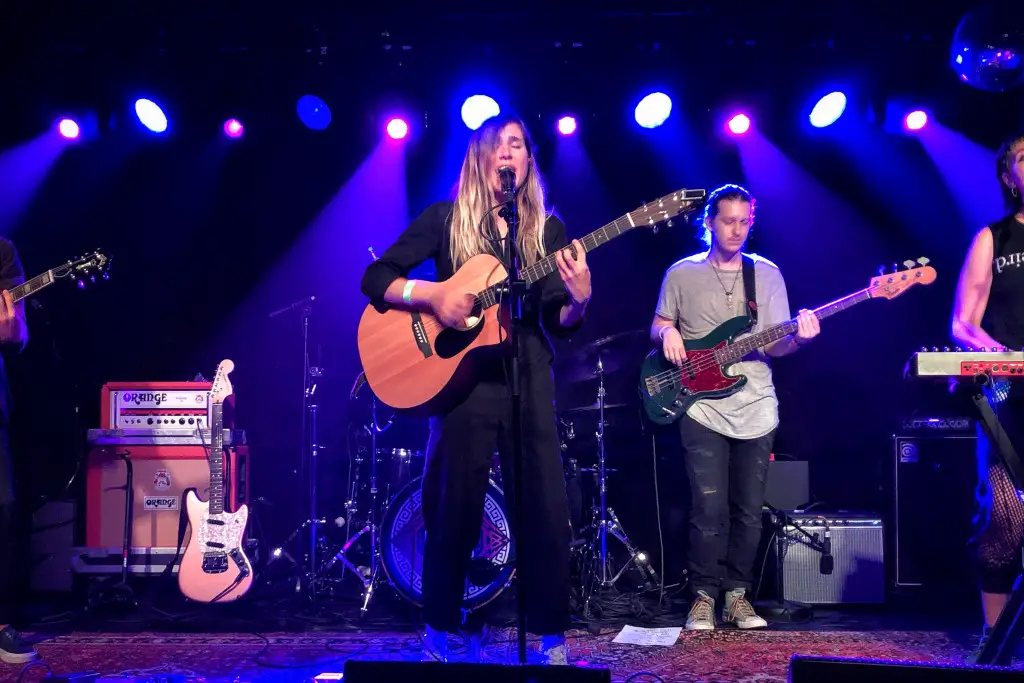
A CONVERSATION WITH TALKER
Atwood Magazine: What’s the story of talker? How did this project come about?
talker: Like most solo projects go, it’s kind of like a lifetime in the making in a way. I’ve always done the music thing in some capacity.
I grew up outside of Sacramento and actually went to school in Miami of all places, but the plan was always to move out to LA and do some sort of solo thing. I had done music my whole life. I had grown up playing msuci and writing music, but it had all take so many different forms and changed so drastically, not only musically, but in myself as a person. Finding my style and my route. So when I got out here, I started writing songs that I thought were really good, but definitely not part of any fully developed version fo who I wanted to be. I didn’t really know who I wanted to be and what I wanted to sound like as an artist, so that stuff kind of took a backseat when I got here. Instead, I focused on writing songs with as many people as I could and went to as many shows as possible. It was all diving in and immersing myself in this world.
I ended up doing a ton of random things I never would have expected. I toured with other bands and wrote songs in several genres. It took a few years of me being here to really figure out the sound I wanted. Then it finally just clicked and it was time. After working so much with other people, I finally got a sense of who I wanted to be as an artist.
What about the name?
talker: The short and simple answer is that my last name is Tauchar – not really spelled the way you think when you hear it. Obviously I love my name and I love my heritage, but it’s kind of been a total pain my whole life to have people butcher it. So this is my way of paying homage to it, while also doing something a little more pronounceable for people.
I mean, it was an ongoing thing for about a year. I didn’t know what I wanted to call myself and then one day it kind of clicked. At one point you have to commit to something and do it. Your identity kind of shifts. When I first decided to go by Talker, it was more a situation of me just deciding to pick something and stick with it. Now that I’m like a year into it, I see the word Talker and immediately associate it with myself.
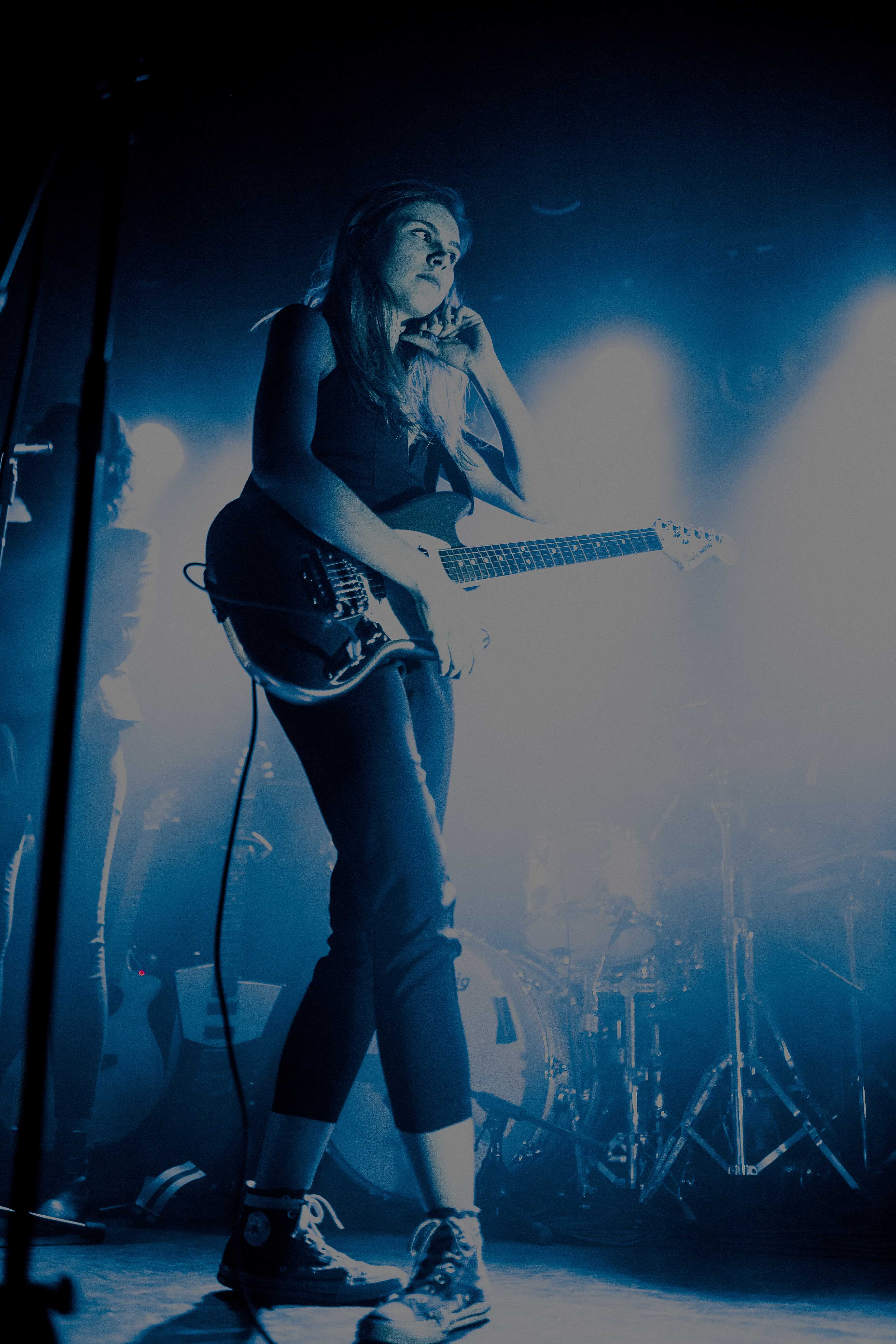
I read your interview in Voyage LA and you mentioned that Frenship really helped you get off the ground when you got here. How have things changed for you since making that connection?
talker: The thing about Frenship is that their music is very different from what I do. So it’s actually kind of nice because it helps me know and affirm that my style and identity are my own, not just a watered-down version of the sound of whomever I’m working with.
That said, it’s been a really all-around helpful experience for me just because I learned how to tour immediately and in a really intense way. I learned how to build out a live show and I do think that that’s where my music really shines now. I think it’s really good personally (laughs), but I think that is because I learned the minute details and level of production value that goes into creating a show like the one Frenship tours on.
They’re also just super supportive, you know, and have been super helpful and willing to kind of introduce me to people and give me advice, or help me out with other things. And I do think a lot of my fans have transferred over from Frenship (not that I have like a billion fans yet). But I have way more honestly than I would if I didn’t link up with Frenship. The initial support has been amazing.
link: http://voyagela.com/interview/meet-celeste-tauchar-talker-studio-city/
What strikes me most about your EP Horror Films is how intimate and confessional it sounds. It feels like pulling back the curtain and revealing the darkness we tend to hide about ourselves. Do you see that as a big approach in your music?
talker: I mean, that is just everything for me. I listen to all kinds of artists, but those I end up really connecting with and that have shaped so many formative moments in my life are the ones that put a lot of emphasis on storytelling and emotion. Bands like Death Cab for Cutie that really know how to tap into that part of our psyche.
All music has some sort of purpose. Even the most basic, surface-level songs can be really fun and bring joy in an effective way. For me though, I feel so seen when I hear other people struggling with the same things I do and offering some sort of solution to it. Even if there really is no solution, I’ve been to a thousand concerts where I’m in the crowd with a bunch of other people who are crying to the same song as me, and I like to think if my music can provide that for somebody, that would be really cool.
Are we learning a lot about your personal struggles from your lyrics?
talker: Oh, completely. Everything is a personal experience on that EP. I wrote a couple of the songs completely alone in my room in a very confessional style, and I co-wrote the others with some of my collaborators, but it was all from my own personal experience – whatever I was going through at the time.
When I think about the term “Horror Films,” I imagine those internal narratives we tell ourselves over and over about how we messed up or why we aren’t good enough. What does it mean to you?
talker: I think you really hit it right on the head. These ideas always develop and take on new meaning as we go through our lives. The title track itself stems from a relationship I had, and it really is the only romance song I have. It’s funny because it’s so creepy and not romantic at all (laughs). But anyway, I got to this point with this person and realized everything had all been surface-level until then. I wanted to dig a little deeper and see, you know, the things that scare you. What are the things you’re worried about? What is your darker side? Not necessarily darker in a nefarious way, but the parts you tend to keep hidden. What do you want in life? What are you afraid of? What do you love? All these things that I might not necessarily chat about with a random stranger. I wanted to go down that subconscious route with this person. Looking at that song, it made sense to name the EP after it overall.
I think the irony there is that although you may not want to talk about these things with a random stranger, they’re on your EP now and anyone can listen to them.
talker: I know. It’s crazy that it works that way, but I think there are a lot of musicians who would do the same thing. There’s something less scary about putting it into a song and putting it out into the whole world than having a one-on-one conversation. Personally I struggle so much to communicate with people in that type of setting and to be vulnerable. But on the flipside I will totally write the most dark and bare-all lyrics and send them out there. Then I’ll just be like, “Oops! I hope nobody realizes what this is.”
When I’m not writing for Atwood Magazine, I pen a lot of creative nonfiction about my life. Often when I go back and see what I’ve published, I think, “Wow! I shouldn’t have talked about that.”
talker: I do think there is this mentality at least in our culture that art is very separate from someone’s actual thoughts and feelings – that you can always dramatize or expand upon something. That seems weird to me. We’re in this place where art is seen as this separate thing where you can say whatever you want, but you can’t in your personal life. I think that’s probably a big reason why a lot of artists and musicains are so fucked up. They’re encouraged vent in their art, but end up repressing themselves and never deal with it in a healthy way outside of that creation.
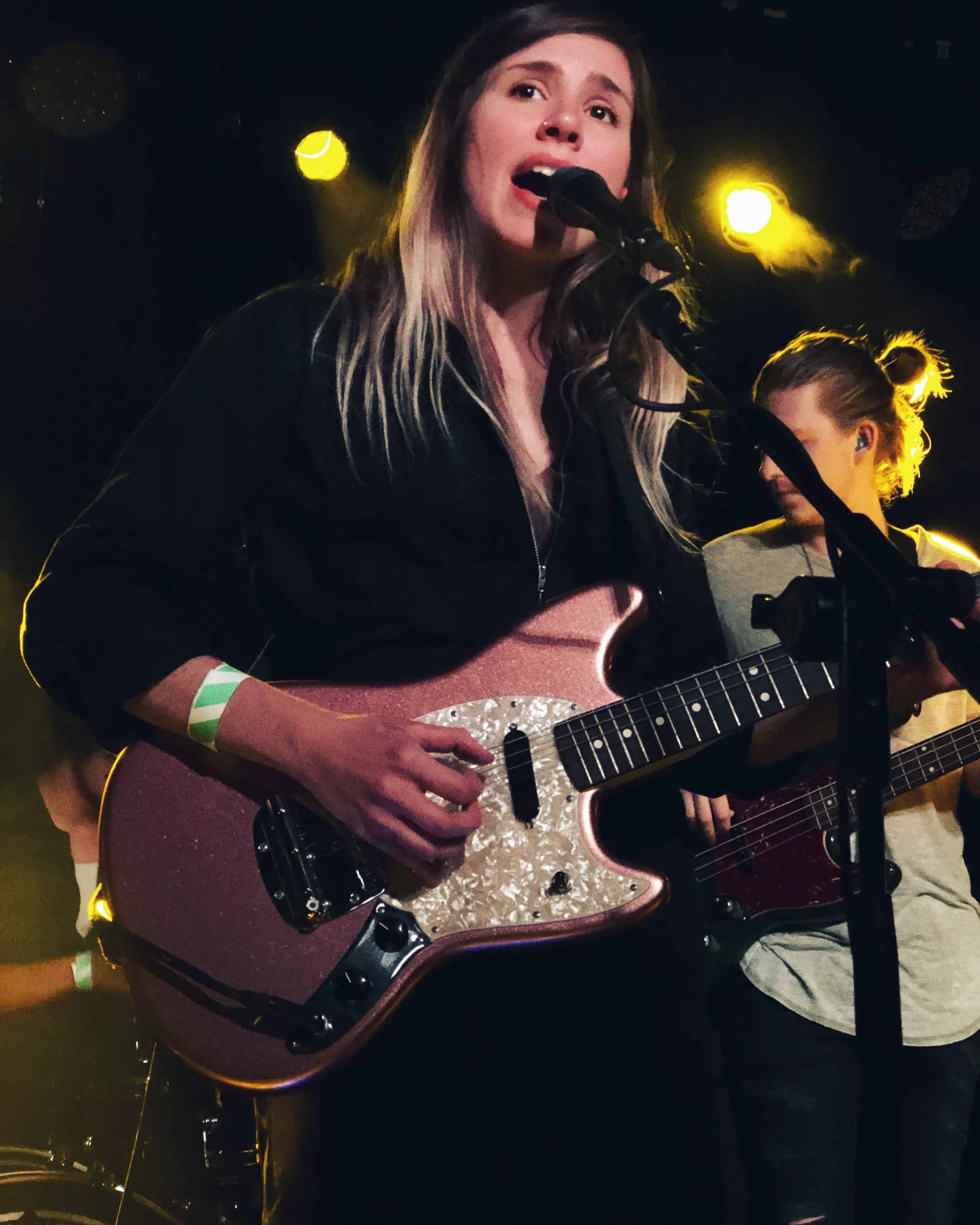
“Passive” feels like a particularly intimate moment in your set. The way you describe dissociating from yourself when breaking up with someone for all the right reasons is something I’ve definitely experienced. It’s almost like you’re watching it happen from outside yourself and you’re powerless to stop it. How do you cope when knowing the right thing to do is also painful?
talker: This is a very timely question in my life. Whether you’re talking about a relationship or some other kind of dilemma, nothing is ever really black and white. Sometimes what is right in the long run may not feel right in the moment, but ultimately it all ends up okay. Still, in that moment it’s really difficult to hurt someone. “Passive” was definitely a product of that and me being in that position.
How do you think one does the least amount of harm while still honoring yourself and the other person?
talker: Sometimes there isn’t an answer. I wrote “Passive” over two years ago, so I feel very removed from the situation that inspired it, but I remember thinking that I was doing a disservice to this person by just existing in my relationship with them and not really wanting to be in it. Meanwhile, actually ending it was really painful and I cried a lot even though I knew it’s what I wanted. It’s difficult not just because you’re hurting someone, but it’s also scary because you’re completely uprooting your way of life as you’ve known it for however long. Even though you know that it’s right, it’s a huge change for you as well.
How does it feel to have Horror Films out there for everyone to listen now?
talker: It’s so nice. I hate holding onto songs, but more than that I feel really proud of it as a body of work. A lot of hard work and love and time went into it. Like we mentioned earlier, it’s very personal and really feels like a journal or a documentation of an era of my life. It’s like I put a nice bow on it, put it out into the world, and now I can move on to the next year. It feels great to release these songs, see the growth I went through in creating them, and see people connect with them.
What music did you have on heavy rotation when you were recording this EP?
talker: I was deep in a big phase during most of this. There’s a lot of grunge influence and I grew up listening to Nirvana, Soundgarden, and those classic bands that you would think of when you hear the word “grunge.” Mostly those are long ago influences, but I was revisiting a lot of that at the time to see what they do and how I could modernize it and make it my own. But I was also deep into Julian Baker, Phoebe Bridgers, Soccer Mommy – that whole scene of these amazing emo singer-songwriter women who I tried to match the caliber of with my own stuff.
What’s up next for Talker? What kind of journeys are you going on this year?
talker: All kinds, so far mostly just emotional ones. I’ve spent the whole summer making music and there’s going to be some new singles coming out this fall.
What would Talker be as a cocktail?
talker: A dark, smoky bourbon cocktail
:: stream “Horror Films” here ::
— — — —
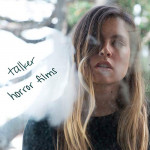
Connect to talker on
Facebook, Twitter, Instagram
Discover new music on Atwood Magazine
© Shabnam Ferdowski

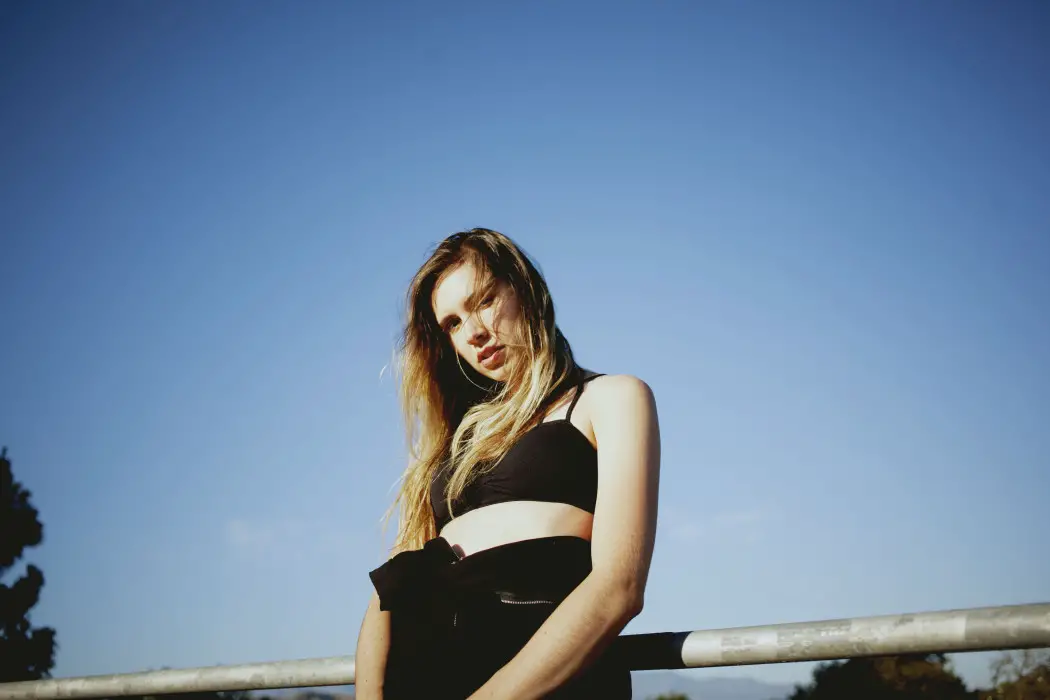
 © Shabnam Ferdowski
© Shabnam Ferdowski